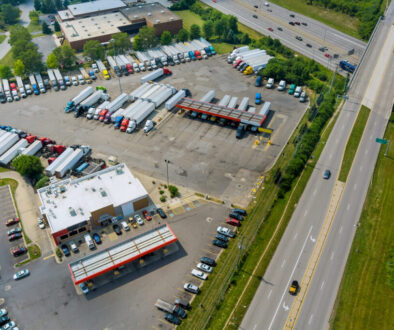American Society of Civil Engineers Does not Approve of Roads
It only takes hitting one hole on the road to understand that US roads are an infrastructure investment that nearly everyone supports. But with such bipartisan approval, roads continue to remain in states of disrepair. The American Society of Civil Engineers (ASCE) grades different aspects of infrastructure in the United States, ranging from aviation to wastewater (sewage). While the nation scored a C- grade overall, the one impacting truckers the most received a D.
Details from the ASCE
ASCE cites TRIP, a nonprofit research organization, by saying that of the over 4 million miles of roadway in the United States, about 43% of it can be classified as “poor” or “mediocre.” The ASCE says that these roads are costing motorists $130 billion each year in additional vehicle maintenance costs that would otherwise not be needed.
Furthermore, the ASCE claims a lack of roadway and lanes to be another reason that America’s roads need more attention. Due to the number of drivers increasing faster than new roads and lanes are being placed, congestion grows from 1% to 3% annually. The congestion growth compounding itself each year, Americans spend an average of 54 hours a year in traffic due to a lack of available roadways, compared to 42 hours in 2014. If these trends continue, the ASCE fears that congestion can increase commute times across the board by almost 75%, turning what currently takes eight hours to travel instead into almost 14.
ASCE says that due to a lack of funding for roads in past years, the United States has a backlog of $661 billion to spend to keep roads in good repair and expanding. As governments of all levels repair and expand roads at a rate slower than needed, this backlog is expected to grow until politicians take it seriously.
Bottom Line
“This report card is a warning and a call to action,” Secretary of Transportation Pete Buttigieg went on to tell the Associated Press. “A generation of disinvestment is catching up to us, and we must choose whether to allow our global competitors to pull ahead permanently, or to invest in the safety, equity, resilience and economic strength that superior infrastructure can bring to Americans.”
Indeed, investment in road repair would both stimulate the economy now by creating well-paying jobs, while also helping the economy in the future by allowing truckers and other vehicle operators to better travel. $661 billion is a lot of money, but consider how the federal government recently passed a coronavirus relief bill that gives approximately $221.9 billion to citizens. While this money is extremely helpful for people impacted directly by the economic fallout caused by COVID-19, it will likely not yield long-term benefits for citizens when compared to road repair.
ASCE says that part of the problem for lack of funding comes from a gas tax that has not been increased to match inflation. Another method governments can use to fund road repair and expansion is to add a tax on vehicle repair that is completed due to substandard roads. This would cause people who use the roads more often to pay more to repair them in a similar way to gas taxes, but would not give people with fuel-efficient or electric vehicles a tax break while shifting the burden disproportionately to others, such as truck drivers using diesel.
Whatever the solution, taxes or printing money, the solution is surely not spending less than the rate of deterioration and letting the backlog grow.
Popular Articles
- Oregon State Bill Plans to Outlaw Diesel Sales
- Truckers Guide to Rebuilding Bad Credit
- FMCSA Declares Regional Emergency Regarding Petroleum
- Best Trucker Memes
- DOT Allows Overweight Transport of Fuels
About Go Capital
Go Capital specializes in providing funding for small to medium-sized trucking businesses that are looking to buy a used truck or trailer to expand the fleet. Even if your credit is not the greatest, we can work with you to get you or your employee behind the wheel and start generating cash!
Click below to get a no-obligation quote. No hard inquiries, no impact on your credit.





